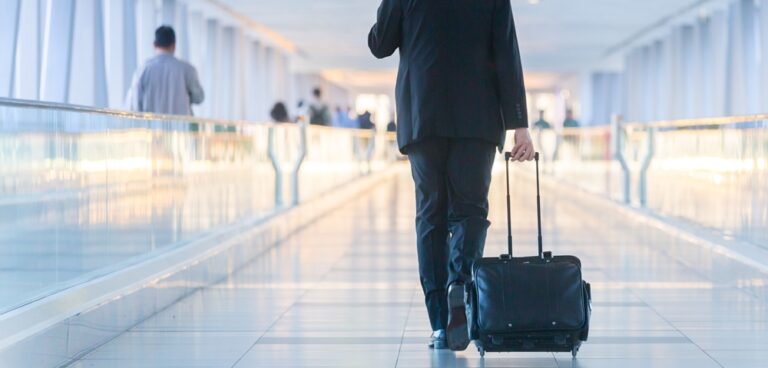On average, international business visitors to the UK spend 15% more than holidaymakers per day.
With this in mind, Nicole Kerr, CEO at airport transfer platform Mozio, has shared the following advice on how businesses can reduce the cost of business travel trips.
1 – Pre-book an airport transfer
“For most business travelers, the preferred method of transport to get from the airport to their destination is to pay for a taxi outside the airport. However, this can be costly, as taxis from an airport are renowned for being expensive, which can considerably add to the cost of the trip.”
“To help reduce the cost of getting from the airport to your destination, use an airport transfer provider and pre-book your transfer. Not only will this be cheaper, but it also means you won’t have to queue for a taxi once you leave the airport.”
2 – Book trips during off-peak times
“Research has suggested that booking flights on peak days, such as Friday and Sunday, can be 10-20% more than on quieter days, such as Tuesday and Wednesday. Booking a travel trip during off-peak times can reduce the overall cost of the trip.”
“Before booking a business trip, be as strategic as possible and plan so that you’re not traveling on peak days of the week, but also months of the year. The summer months, particularly July and August, are peak times for families to take vacations. Instead, book trips around these months to help reduce costs.”
3 – Use a travel management tool
“If you own a business where employees travel frequently, then it’s advisable to invest in a travel management tool. Tools that are specifically designed for managing business travel costs provide businesses with the reassurance that all costs are managed in one place and can be easily tracked.”
“Alongside the above points, travel management tools can help to reduce costs by accessing negotiated rates on flights, accommodation, and more.”
4 – Introduce a pre-trip approval process
“One of the best ways to keep track of how much is being spent on business travel is to introduce a pre-trip approval process. Instead of allowing employees to book their own travel and accommodation, implementing an approval process means that both employer and employee are aligned on budget expectations.”
“While this type of process gives employees an indication of how much they can spend daily, it also reassures the employer that employees can’t overspend, as an agreed budget will have been uploaded to a business credit card.”
5 – Plan and book ahead of your trip
“Similar to pre-booking your airport transfer, it’s important to book most, if not all, aspects of the trip well in advance. Travel companies often advertise cheaper last-minute deals for package vacations; however, when booking flights separately, you can expect to see the price of them increase nearer to the departure date.”
“For domestic flights, it’s advisable to book them 1-3 months before the trip, and for international flights, 2-8 months. Following this rule will help you to avoid any last-minute price surges.”
6 – Join an airline loyalty scheme
“For frequent flyers, it’s worth joining an airline loyalty scheme. Schemes such as United MileagePlus and British Airways Executive Club are renowned for providing frequent flyers with benefits that can reduce the amount spent on flights and additional costs.”
“Joining an airline loyalty scheme means that every time you fly, you will earn rewards which can result in free flights, upgrades, and luggage costs being waived.”

